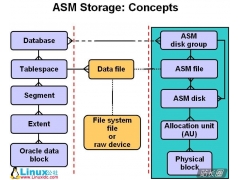Mysql数据库锁定机制详细介绍(9)
MyISAM存储引擎基本上可以说是对MySQL所提供的锁定机制所实现的表级锁定依赖最大的一种存储引擎了,虽然MyISAM存储引擎自己并没有在自身增加其他的锁定机制,但是为了更好的支持相关特性,MySQL在原有锁定机制的基础上为了支持其ConcurrentInsert的特性而进行了相应的实现改造。
而其他几种支持事务的存储存储引擎,如Innodb,NDBCluster以及BerkeleyDB存储引擎则是让MySQL将锁定的处理直接交给存储引擎自己来处理,在MySQL中仅持有WRITE_ALLOW_WRITE类型的锁定。
由于MyISAM存储引擎使用的锁定机制完全是由MySQL提供的表级锁定实现,所以下面我们将以MyISAM存储引擎作为示例存储引擎,来实例演示表级锁定的一些基本特性。由于,为了让示例更加直观,我将使用显示给表加锁来演示:RITE_ALLOW_READ 类型的写锁定。
刻
Session a
Session b
行锁定基本演示
1
mysql> set autocommit=0;
Query OK, 0 rows affected (0.00 sec)
mysql> set autocommit=0;
Query OK, 0 rows affected (0.00 sec)
mysql> update test_innodb_lock set b = 'b1' where a = 1;
Query OK, 1 row affected (0.00 sec)
Rows matched: 1 Changed: 1 Warnings: 0
更新,但是不提交
2
mysql> update test_innodb_lock set b = 'b1' where a = 1;
被阻塞,等待
3
mysql> commit; Query OK, 0 rows affected (0.05 sec) 提交
4
mysql> update test_innodb_lock set b = 'b1' where a = 1;
Query OK, 0 rows affected (36.14 sec)
Rows matched: 1 Changed: 0 Warnings: 0
解除阻塞,更新正常进行
无索引升级为表锁演示
5
mysql> update test_innodb_lock set b = '2' where b = 2000;
Query OK, 1 row affected (0.02 sec)
Rows matched: 1 Changed: 1 Warnings: 0
mysql> update test_innodb_lock set b = '3' where b = 3000;
被阻塞,等待
6
7
mysql> commit; Query OK, 0 rows affected (0.10 sec)
8
mysql> update test_innodb_lock set b = '3' where b = 3000;
Query OK, 1 row affected (1 min 3.41 sec)
Rows matched: 1 Changed: 1 Warnings: 0
阻塞解除,完成更新
间隙锁带来的插入问题演示
9
mysql> select * from test_innodb_lock;
+------+------+ | a | b |+------+------+
| 1 | b2 |
| 3 | 3 |
| 4 | 4000 |
| 5 | 5000 |
| 6 | 6000 |
| 7 | 7000 |
| 8 | 8000 |
| 9 | 9000 |
| 1 | b1 |
+------+------+
9 rows in set (0.00 sec)
mysql> update test_innodb_lock set b = a * 100 where a < 4 and a > 1;
Query OK, 1 row affected (0.02 sec)
Rows matched: 1 Changed: 1 Warnings: 0
10
mysql> insert into test_innodb_lock values(2,'200');
被阻塞,等待
11
mysql> commit;
Query OK, 0 rows affected (0.02 sec)
12
mysql> insert into test_innodb_lock values(2,'200');
Query OK, 1 row affected (38.68 sec)
阻塞解除,完成插入
使用共同索引不同数据的阻塞示例
13
mysql> update test_innodb_lock set b = 'bbbbb' where a = 1 and b = 'b2';
Query OK, 1 row affected (0.00 sec)
Rows matched: 1 Changed: 1 Warnings: 0
14
mysql> update test_innodb_lock set b = 'bbbbb' where a = 1 and b = 'b1'; 被阻塞
15
mysql> commit;
Query OK, 0 rows affected (0.02 sec)
16
mysql> update test_innodb_lock set b = 'bbbbb' where a = 1 and b = 'b1'; Query OK, 1 row affected (42.89 sec)
Rows matched: 1 Changed: 1 Warnings: 0
session 提交事务,阻塞去除,更新完成
死锁示例
17
mysql> update t1 set id = 110 where id = 11;
Query OK, 0 rows affected (0.00 sec)
Rows matched: 0 Changed: 0 Warnings: 0
18
mysql> update t2 set id = 210 where id = 21;
Query OK, 1 row affected (0.00 sec)
Rows matched: 1 Changed: 1 Warnings: 0
19
mysql>update t2 set id=2100 where id=21;
等待sessionb释放资源,被阻塞
20
mysql>update t1 set id=1100 where id=11;
Query OK,0 rows affected (0.39sec)
Rows matched: 0 Changed: 0 Warnings:0
等待sessiona释放资源,被阻塞
两个 session 互相等等待对方的资源释放之后才能释放自己的资源,造成了死锁
行级锁定
行级锁定不是MySQL自己实现的锁定方式,而是由其他存储引擎自己所实现的,如广为大家所知的Innodb存储引擎,以及MySQL的分布式存储引擎NDBCluster等都是实现了行级锁定。
Innodb 锁定模式及实现机制
考虑到行级锁定君由各个存储引擎自行实现,而且具体实现也各有差别,而Innodb是目前事务型存储引擎中使用最为广泛的存储引擎,所以这里我们就主要分析一下Innodb的锁定特性。
- 上一篇:MySQL全局共享内存介绍
- 下一篇:Mysql日志文件和日志类型介绍




